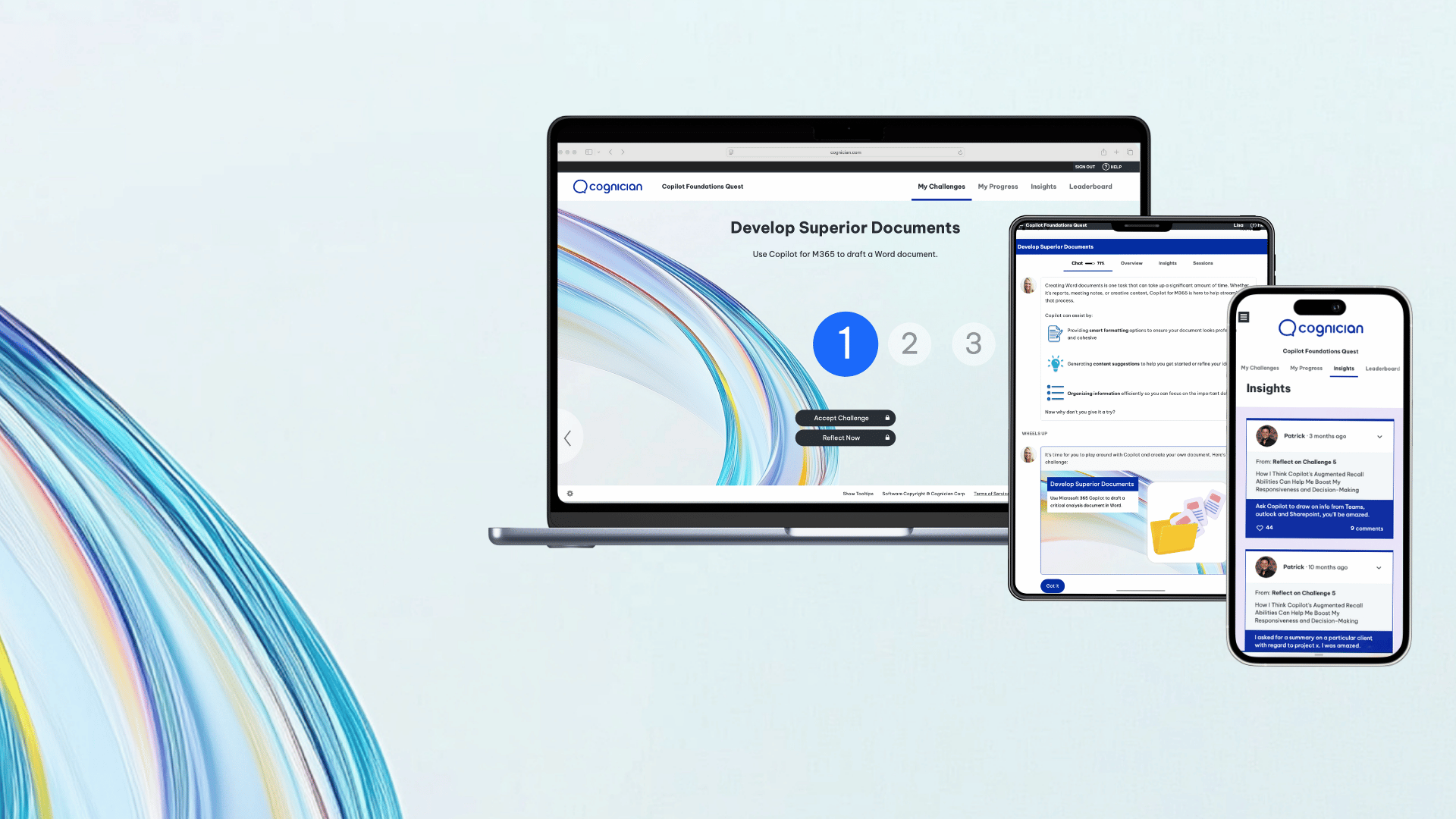At Cognician, we understand that conversation is key to activating behavior change. Find out why here...
According to this Psychology Today article, these transformational conversations hold great power in changing the brain. The process stimulates hormone and neurotransmitter production resulting in a change in our body chemistry for the better.
Fact 1: Focusing on positive communication triggers neurochemicals that make employees feel good
The conversations we have produce neurochemicals in our brains that either make us feel good or bad. Positive interactions stimulate the release of biochemicals such as oxytocin and endorphins. These make us feel good, safe and help build a sense of trust. On the other hand, negative interactions or stress, cause the release of cortisol which makes us feel bad. This invokes protective behavior and prevents us from engaging and connecting with others.
What does this mean for activating behavior change in learning programs? Conversations, questions and prompts in learning programs need to focus on positive, collaborative and reinforcing messaging. This encourages employees to buy into the process. It also creates a safe, stimulating and supportive environment in which employees can embrace, explore and actively engage in behavior change.
Fact 2: Fostering Conversational Intelligence (C-IQ) helps employees to strengthen relationships and build success
Conversational Intelligence is key in helping employees to build collaborative relationships that ensure their success. Like any muscle, C-IQ can be trained, honed and strengthened. The more we are encouraged to participate in positive conversations, the more we are inclined to share, discover and collaborate.
If learning programs provide employees with the means to share their insights and wisdom, their colleagues can collectively learn from them and be exposed to perspectives other than their own. Employees who learn to express their feelings and inner thoughts in a healthy and constructive way have a healthy C-IQ. A healthy C-IQ leads to more effective communication, helping learners to build healthy relationships and trust networks with colleagues, supervisors and clients. This in turn can lead to greater harmony and success for both the individual and the organization.
Fact 3: Developing transformational conversations inspires deep learning and innovation
It is not enough to have a developed and healthy C-IQ. To drive deep learning and inspire innovation, collaboration and trust, employees need to learn the art of transformational conversations. These types of interaction are also known as “co-creating” conversations, where employees learn to ask questions for which they have no answers and learn to listen to the opinions and perspectives of other people.
Learning programs that drive deep thinking by asking probing and open-ended questions, help learners to dig deep and think beyond their usual parameters. This leads to thinking in new ways, aiding discovery and innovation. Employees who regularly partake in transformational conversations make them more inclined to tackle problems and challenges cooperatively. And provide and receive constructive feedback more regularly, establishing trust and reinforcing bonds.
As the saying goes, “No man is an island”. It is only through effective communication, conversational intelligence, trust, feedback and good listening skills that employees can learn to collaborate and innovate.



.png)

